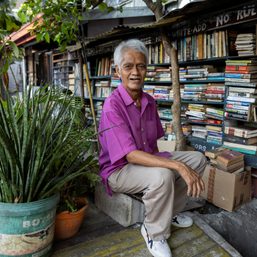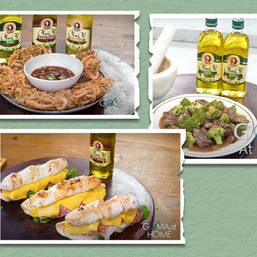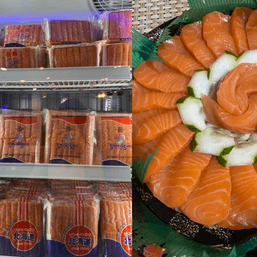SUMMARY
This is AI generated summarization, which may have errors. For context, always refer to the full article.
![[#RapplerReads] Easy and delicious recipes for cooking with social responsibility](https://www.rappler.com/tachyon/2022/07/rappler-reads.jpg)
Editor’s note: #RapplerReads is a project by the BrandRap team. We earn a commission every time you shop through the affiliate links below.
Which essential ingredients make a good dish? Garlic, onion, oil, salt, pepper, maybe some soy sauce and patis (fish sauce) if you’re Filipino. The meat or seafood should be fresh and the vegetables not wilted. If you got these covered and you follow the right recipe, then you should be able to cook a nice-tasting dish.
But what if the recipe calls for you to do more than just simply buying the ingredients and following the prep and cooking instructions? What if it tells you to ditch meat and seafood because these industries are contributing to climate change? Or buy your fruits and vegetables from small, local farmers instead of in the grocery? Would you still follow the recipe to a tee?
Makisawsaw Vol. 2: Community Gardens Editions
Makisawsaw Recipes x Ideas: Community Gardens Editions is one such cookbook. It features 50+ plant-based recipes by various contributors that make use of local ingredients: adobong papaya, kangkong kimchi, binurong kamias, saluyot nasi goreng, bistek na ubod, and other Filipino and Asian dishes.
Contrary to the reputation of plant-based dishes as food for the rich, these recipes can be cooked without the need for fancy kitchen equipment like food processors or ovens. They have to be, because most of these dishes were born out of limited ingredients and resources while attempting to feed the urban poor especially during the pandemic.
The movement behind this book, Food Today, Food Tomorrow, is not just about community kitchens and feeding programs, though. That’s just one part of it: Food Today. They’re also advocating for community urban gardens: Food Tomorrow. They want to help every community – whether you’re living in a small condo unit or a residential area without a single patch of land – to start edible gardens in whatever way they can.
This isn’t just for hobby or anything – though this can come as a bonus – but rather, it aims to make fresh food more accessible to all. It makes you think that in this day and age, food has become more accessible than ever. But we all know what happened during the start of the pandemic when the whole Metro Manila and some parts of the Philippines had to be put under strict lockdowns. We had to wait in long lines to buy food in the grocery or in the wet market. Even ordering food online entailed days of virtual queuing.
Wouldn’t it have been easier if we had food close to our homes that we could harvest anytime?
A feast for the eyes, mind, and taste buds
Makisawsaw Recipes x Ideas: Community Gardens Editions is a book that will whet not just your appetite but as well as your eye for beautiful design. It’s filled with colorful illustrations of different kinds of fruits, vegetables, herbs, spices, and legumes, that will remind you of what doctors say you should eat to be healthy: a rainbow on a plate.
The essays on food security and kitchen activism will urge you to be more socially-responsible about the food you eat and where you source your ingredients. You’ll also be inspired by stories behind some of the recipes – from veganized heirloom recipes to humble recipes served during some of Lingap Maralita’s feeding programs.
I, myself, have started incorporating more local vegetables into my husband and I’s daily meals. It would be great to start our own small edible garden on the balcony and practice bokashi composting, too. But for now, we’ll source our ingredients from Good Food Community’s Community Shared Agriculture to help support our local farmers and cook our meals with local flavors and social responsibility. – Rappler.com

Add a comment
How does this make you feel?






![[OPINION] Where are the community libraries 30 years after we passed the law?](https://www.rappler.com/tachyon/2024/06/tl-barangay-public-libraries.jpg?resize=257%2C257&crop=195px%2C0px%2C720px%2C720px)








![[WATCH] Binignit for Holy Week](https://www.rappler.com/tachyon/2021/03/binignit.jpg?resize=257%2C257&crop_strategy=attention)



There are no comments yet. Add your comment to start the conversation.